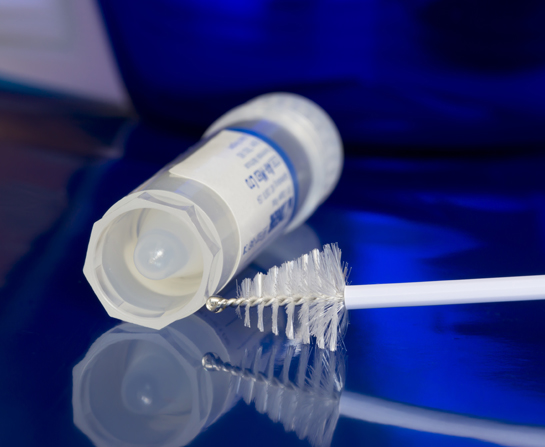HPV DNA TESTING FOR MORE ACCURATE DETECTION OF CERVICAL CANCER
May 8, 2022 Return

WORDS LIM TECK CHOON
According to the Human Papillomavirus and Related Diseases Report on Malaysia 2019, cervical cancer ranks as the third leading cause of female cancer in Malaysia and the second most common female cancer in women aged 15 to 44 years. Approximately 1,682 new cervical cancer cases are diagnosed annually in Malaysia.
Human papillomavirus (HPV) infection is a well-established cause of cervical cancer and there is growing evidence of HPV being a relevant factor in other anogenital cancers (vulva, vagina, anus and penis) as well as head and neck cancers. “Any woman who is sexually active or used to be sexually active may be at risk of contracting cervical cancer,” says Dr Kavitha Nagandla, a consultant obstetrician and gynaecologist at IMU Healthcare.
Cervical cancer is usually found in women who are in their 30s to 40s. To mitigate the risk of cervical cancer in the female population, the Ministry of Health Malaysia has since 2010 introduced through schools, the Human Papilloma Virus (HPV) vaccination program for girls aged 13.
Regular screening are still necessary even after being vaccinated against HPV
“Women need to understand that the vaccine does not offer 100% protection,” says Dr Kavitha. “Although the vaccine is very effective, we still need more data and until then, women regardless of whether or not they are vaccinated are strongly advised to undergo regular screening.”
“The purpose of screening is to catch abnormalities in the cells early so there can be early intervention,” she further explains, adding that HPV not only causes cancer but also non-cancerous conditions like warts on the hands, feet, eye lids, lips and genital area but these conditions are highly treatable.
A Pap smear would usually be recommended by the specialist. This is a procedure in which a small brush or spatula is used to gently remove cells from the cervix to be checked for cell abnormalities that may lead to cervical cancer. It is essentially a test that detects pre-cancerous cells and is done as part of a pelvic exam.
In general, women aged 21 to 50 should get a Pap smear done annually. If the results are normal 2 years in a row, then they should do it every 3 years.
Women aged 50 to 65 should have it done every 5 years, while women aged 65 and above should get checked if they have signs and symptoms such as post-menopausal bleeding.
A Pap smear is not required for women who have never had any sexual intercourse as there is practically no risk of contracting HPVs nor cervical cancer. Women that used to be sexually active but currently aren’t, on the other hand, should still continue getting a Pap smear, as they are still at risk of developing cervical cancer from their past relationships.
HPV screening for added security and peace of mind
It is highly recommended to combine HPV DNA testing alongside the Pap smear test.
Although Pap Smear is the most common form of screening for cervical cancer, its sensitivity is only 50%. That’s why doctors are now advocating that along with the Pap smear, patients should also do HPV testing. HPV testing is 99% sensitive.
“If there is an option for HPV screening, we would advise the patient to do it as Pap Smear alone is not sufficient to identify potential issues with the cervix,” Dr Kavitha says.
“There needs to be more awareness on the HPV test and how it is a more accurate form of screening. The sensitivity is so high, you can repeat the HPV test every 5 years if confirmed negative,” she adds.
